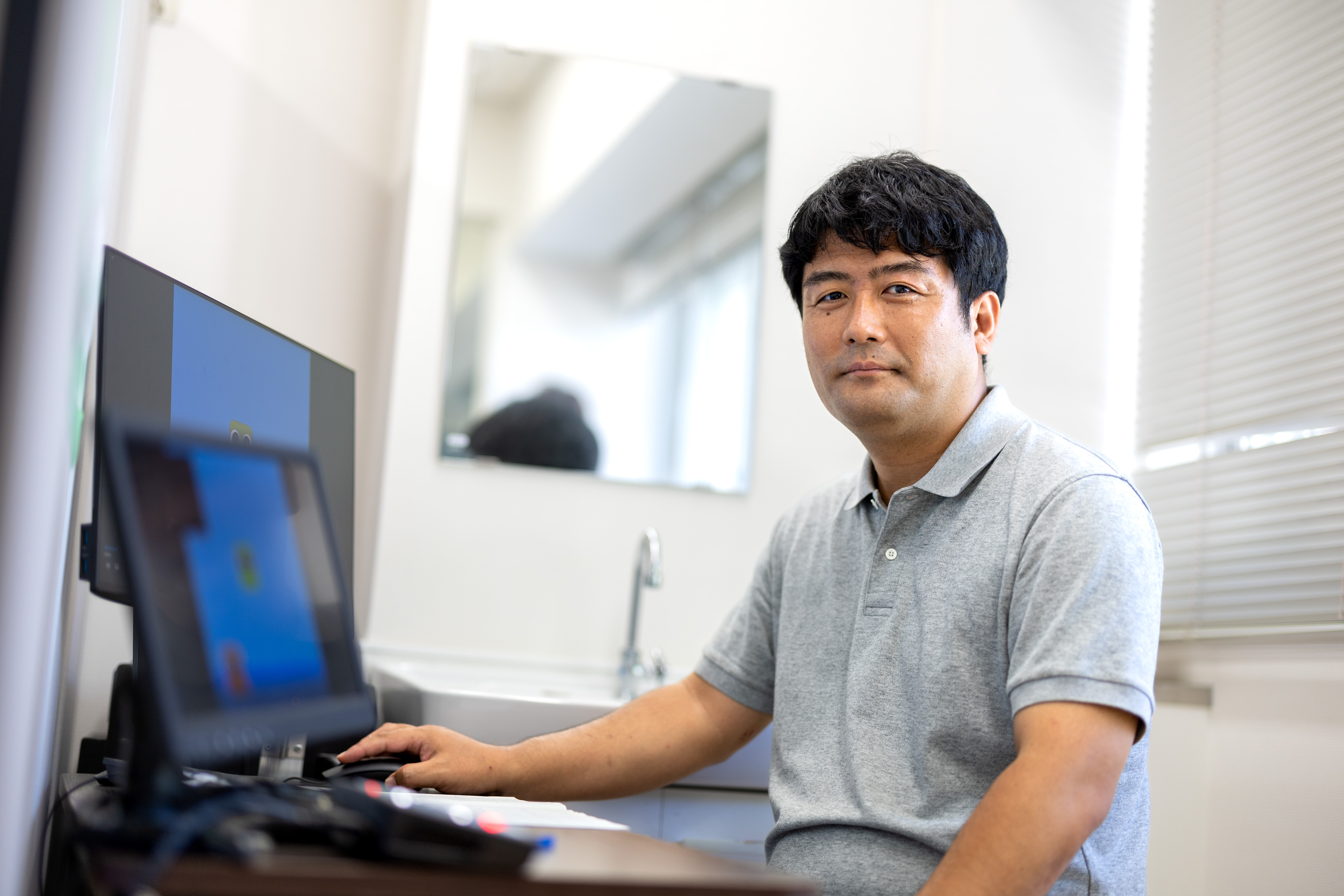
Dr. Yasuhiro Kanakogi, Associate Professor, Graduate School of Human Sciences
"Pursuing human nature: Even infants punish antisocial others"
What kind of nature do humans come into the world with?
Dr. Yasuhiro Kanakogi has been involved in infant research ever since he studied experimental psychology. His motivation is to understand the nature of human beings. He says that by studying social cognition in infants, we can learn about human nature. In his latest research paper, published in Nature Human Behaviour, he found that infants also behave in ways that punish antisocial third parties.
Infants themselves engage in moral behavior
Previous developmental studies have shown that infants are born with a justice bias, in which they make moral judgements (good or bad) about the actions of others. However, it was not understood whether they actually act in ways that punish third parties for wrongdoing of others. Dr. Kanakogi says that even infants a few months old are influenced by their environment after birth; however, by focusing on infants with as few acquired influences as possible, it is possible to get closer to elucidating the universal aspects of human nature. He and his collaborative team has developed an experimental system that uses animations incorporating a new eye gaze technology, which enables measurement of infant behavior. As a result, the infants were observed to perceive and punish the wrongdoing of others. To prove this moral behavior in infants, the team set up subsequent subtraction experiments, so to speak, to exclude the possibility of a mere visual preference, to confirm infants’ self-agency, and to confirm that their behavior is only in response to animate objects.
In conclusion, they found that the infants themselves act morally. In other words, they indicated that infants may have some awareness of the need to punish. Furthermore, it could suggest the possibility that human beings acquired the tendency toward moral behavior in the course of evolution.

From Japan to the global stage
Dr. Kanakogi, who has always been based in Japan while collaborating with other researchers in Japan and abroad, believes that it is meaningful to disseminate his research in English. He’s afraid that if the public does not understand the significance of research, researchers will not be able to continue their research. He also says that researchers like himself, who are engaged in basic research and clarifying human nature, need to share the results of their research widely and contribute to society in this regard.
In Japan, the humanities and sociology fields, which include experimental psychology, are classified differently from natural sciences and generally receive smaller research budgets. Although psychology is often a part of interdisciplinary research projects, there are not many large-scale projects in which psychology is the main focus. He thinks it is important that he is disseminating such results from here in Japan.
The results of this research have had a greater response overseas than in Japan. He also hopes that this feedback from both Japan and overseas will encourage students to find research interesting and fascinating.

His goal as a researcher
Dr. Kanakogi's goal is to find phenomena that will lead to a better understanding of human beings and the question of who we are as human beings. In particular, he hopes to present evidence, create proposals, and establish a theory. He says that he has not yet reached that stage. For instance, there is a theory called "core knowledge," which was proposed in the 1990s, stating that people are born with the knowledge necessary for survival, such as systems for representing objects, actions, numbers, and space. He said that he hopes to establish a fundamental idea about human beings that can be understood by a concept like core knowledge.
For more information
The article, “Third-party punishment by preverbal infants” was published in Nature Human Behaviour at DOI: https://doi.org/10.1038/s41562-022-01354-2.
https://resou.osaka-u.ac.jp/en/research/2022/20220610_1
https://rd.iai.osaka-u.ac.jp/en/e1f9b0e1d068fb61.html
Text: Mayumi Mochizuki/Edit: Christopher Bubb